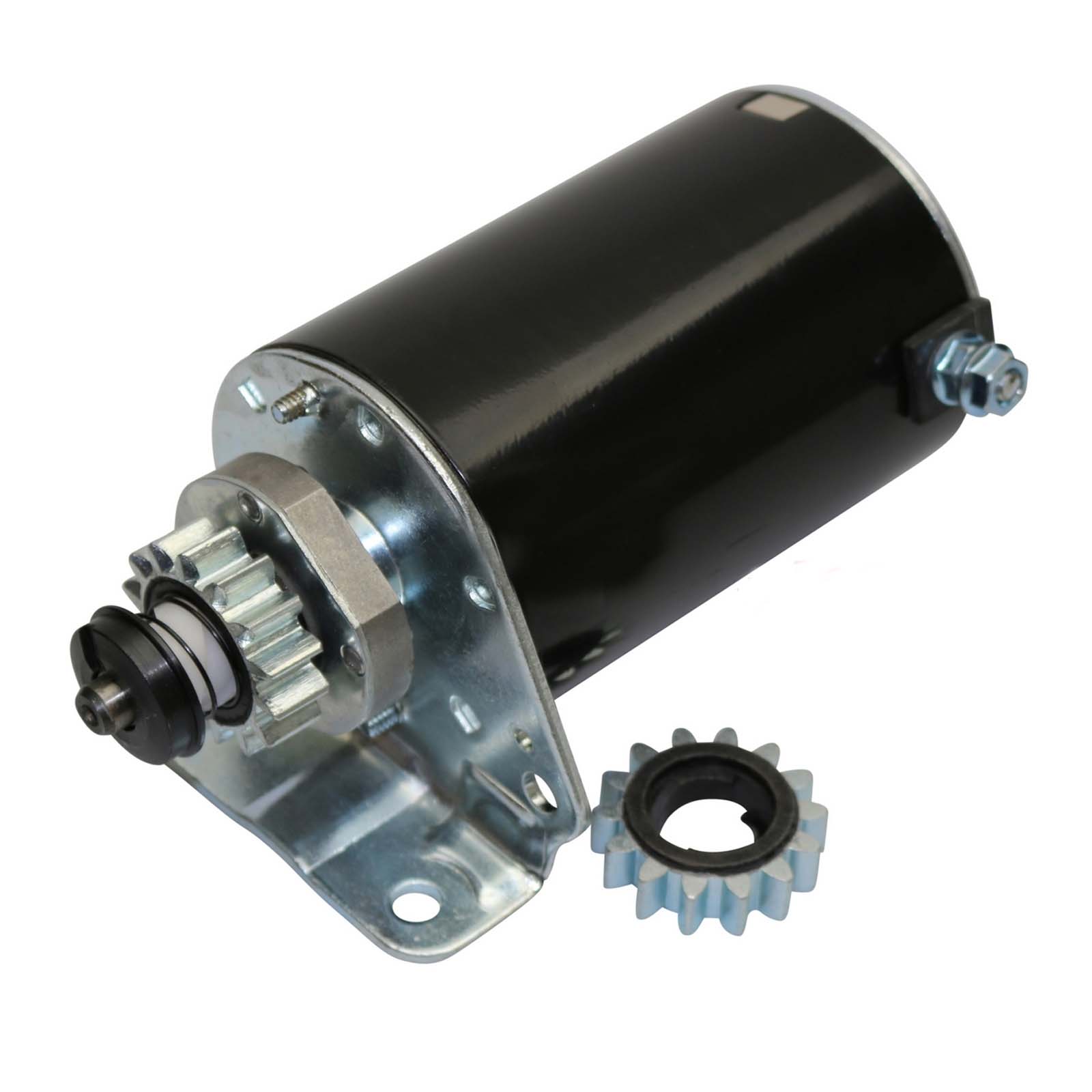
14 tooth Starter Motor Steel Gear Briggs and Stratton Ride on & Mower H/duty JONO & JOHNO
Electrical Technology 4 12 minutes read Types of Motor Starters and Motor Starting Techniques Table of Contents What is a Motor Starter? Why We Need a Starter with a Motor? How a Motor Starter Works? Types of Motor Starters Based on Starting Methods & Techniques Full Voltage or Across The Line Starter Full Voltage Reversing Starter

Pin by Francisco Rocha Cunha on Carros Starter motor, Automotive mechanic, Automobile engineering
Drive lever 4. Pinion gear 5. Yoke and pole core 6. Field coils 7. Plunger How does the starter motor work? What are the types of starter motors? What is the starter in a car? A car starter is an electric motor that cranks or turns over, a car's engine to start it.

Starter motor, starting system how it works, problems, testing Starter motor, Automotive
A mechanical device known as a starter motor is used in internal combustion engines (ICEs) to spin the engine's crankshaft. It makes getting the engine's primary operation feasible using the internal power it generates. A vital part of an engine's functioning is the starter, also known as a starter motor, engine starter, or cracking motor.
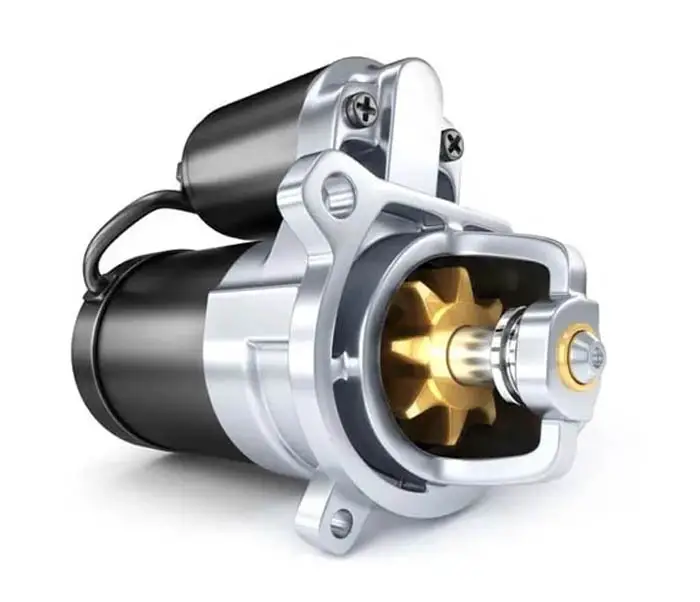
11 Parts Of Car Starter Motor & Functions + Working
Written by Editor in Mechanic Talk Last Updated February 12, 2023 Starter motors are essential starting system components to start your baby ride. Without it, your vehicle will not start. It is controlled electronically to start the internal combustion engine.

Starter Fits Briggs & Stratton 28D707 28M707 28N707 28N777 28P777 Engines
A starter motor is an essential component in the ignition system of an internal combustion engine. Its primary function is to crank the engine, enabling it to start.
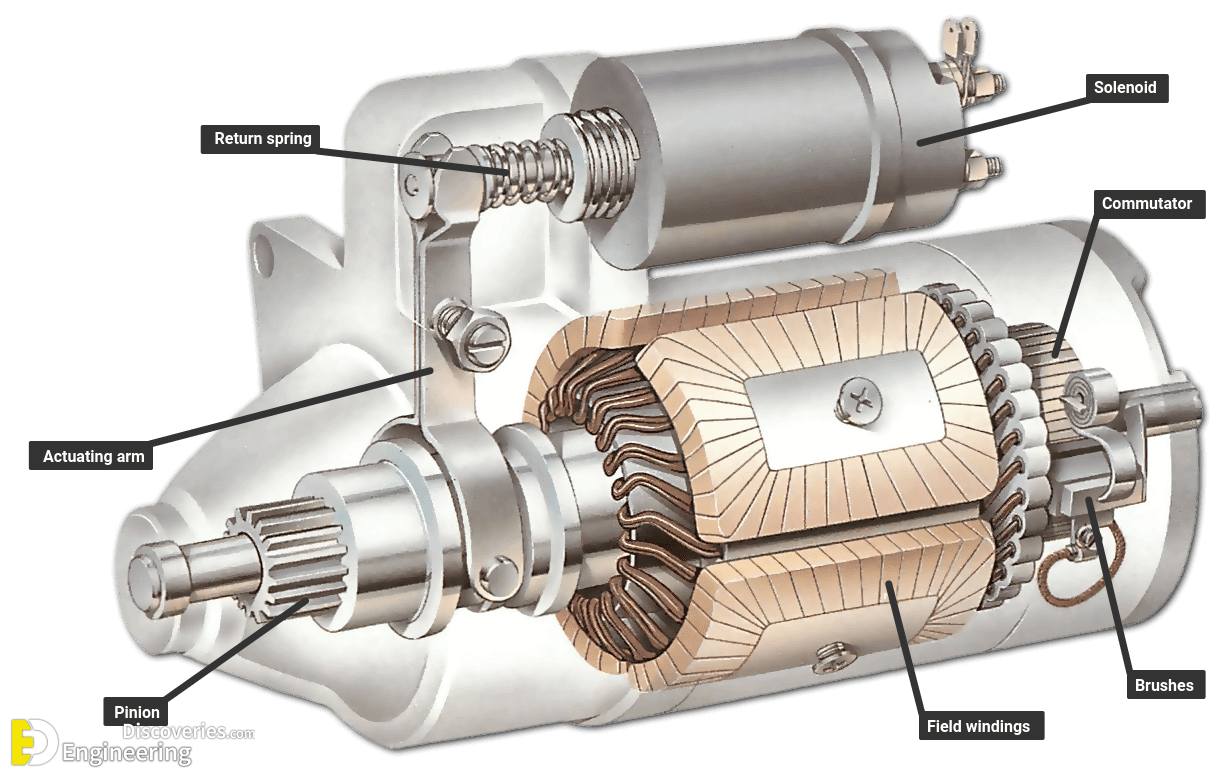
Parts And How To Work Self Start Mechanism Engineering Discoveries
Definition of Starter Motor. A starter motor or starting motor, or cranking motor, is a direct current motor that cranks the engine for starting. Cranking the engine means rotating the crankshaft by applying torque on it so that the piston may get reciprocating motion.. The starting motor is mounted on the engine flywheel housing. It is a series wound and is made to run at low voltages with.
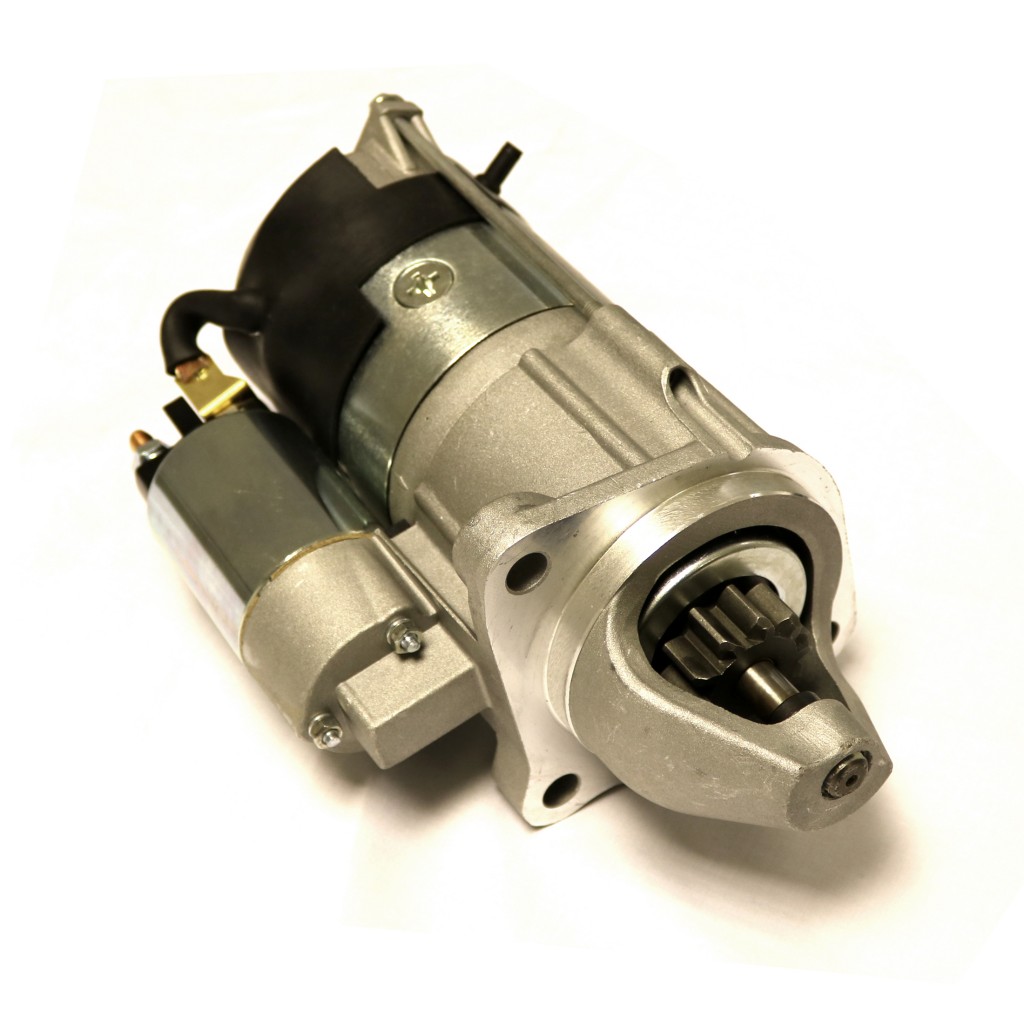
Starter Motors GT Automotive
Conclusion Source: repairsmith.com A starter motor is an essential component of any vehicle, and understanding its components and functionality will help you maintain it properly. The starter motor consists of a solenoid, a starter Bendix drive assembly, and an armature.
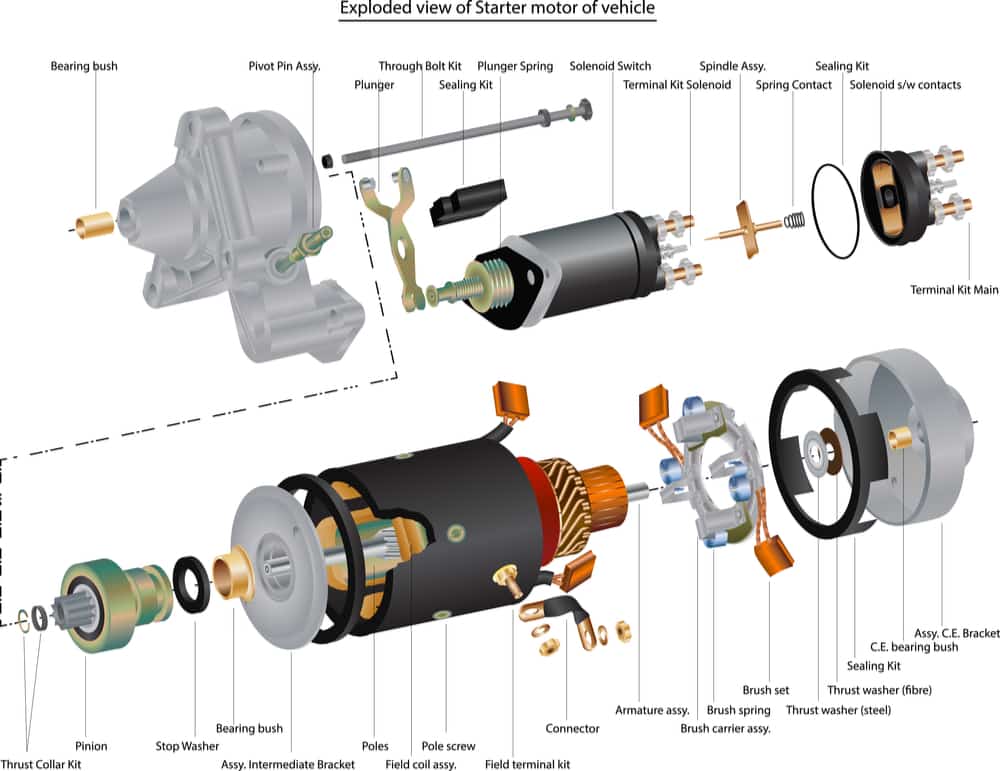
Why Won't My Starter Work
The starter motor is an electric motor that turns over or "cranks" the engine to start. It consists of a powerful DC (Direct Current) electric motor and the starter solenoid that is attached to the motor (see the picture). Starter motor. Click for a larger photo.
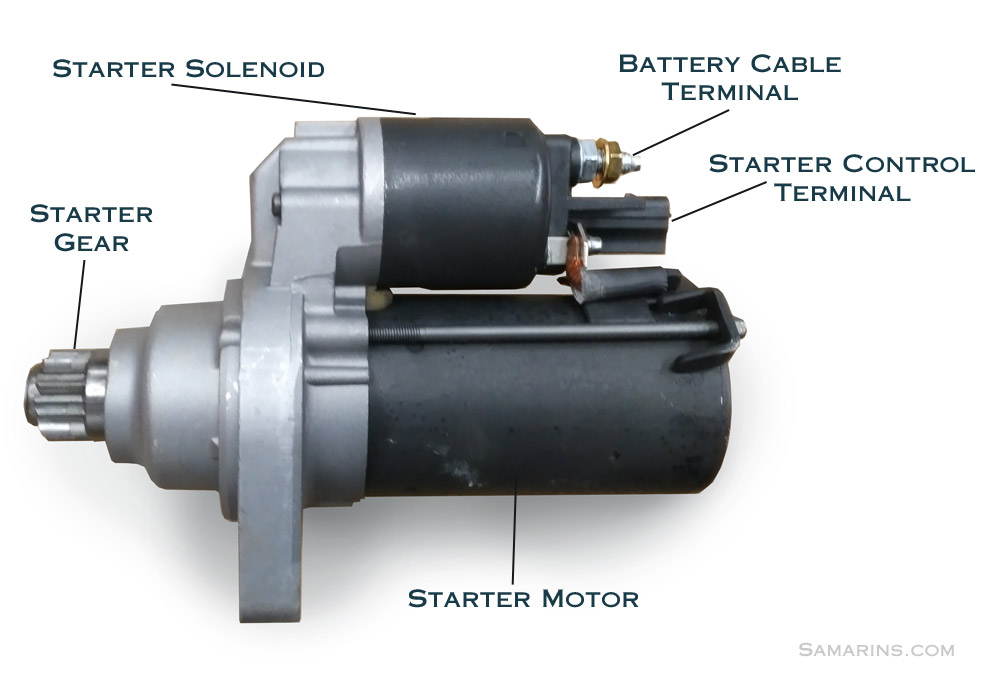
Starter motor, starting system how it works, problems, testing
1. Battery 2. Ignition Switch 3. Neutral Safety Switch 4. Starter Relay 5. Battery Cables 6. Starter Motor Working principles. Starting System | Components and Working Of Starting System
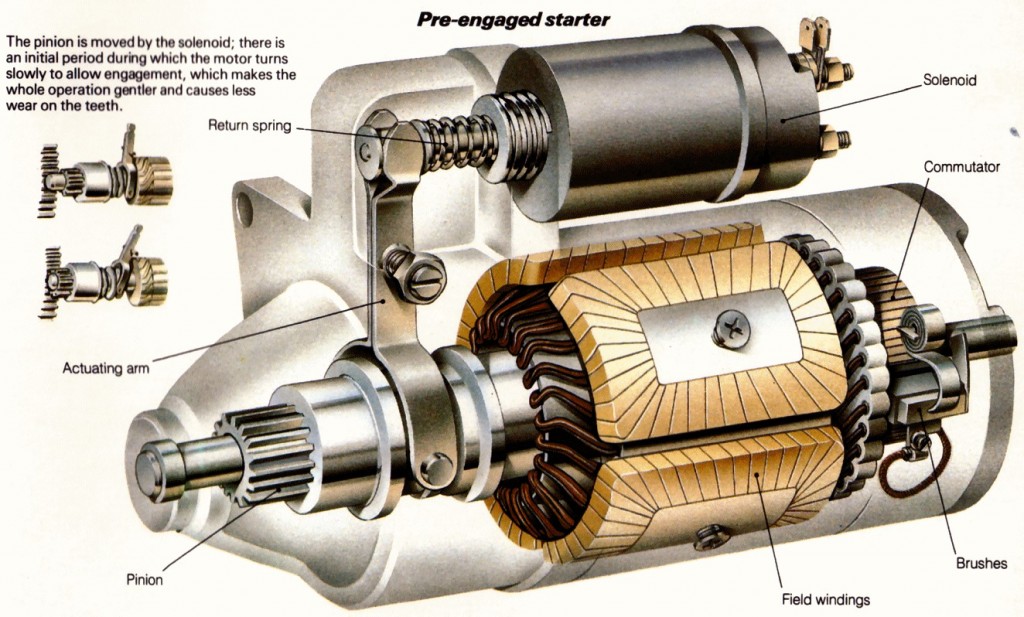
Electrical Parts Engine Fix UK
- Jan 23, 2022 0 Learn how starter motors work, where they are used and why they are essential for a car to start. We look at the main parts as well as how starter motors work how it turns the flywheel which starts the combustion process to start the car engine. Scroll to the bottom to watch the YouTube tutorial
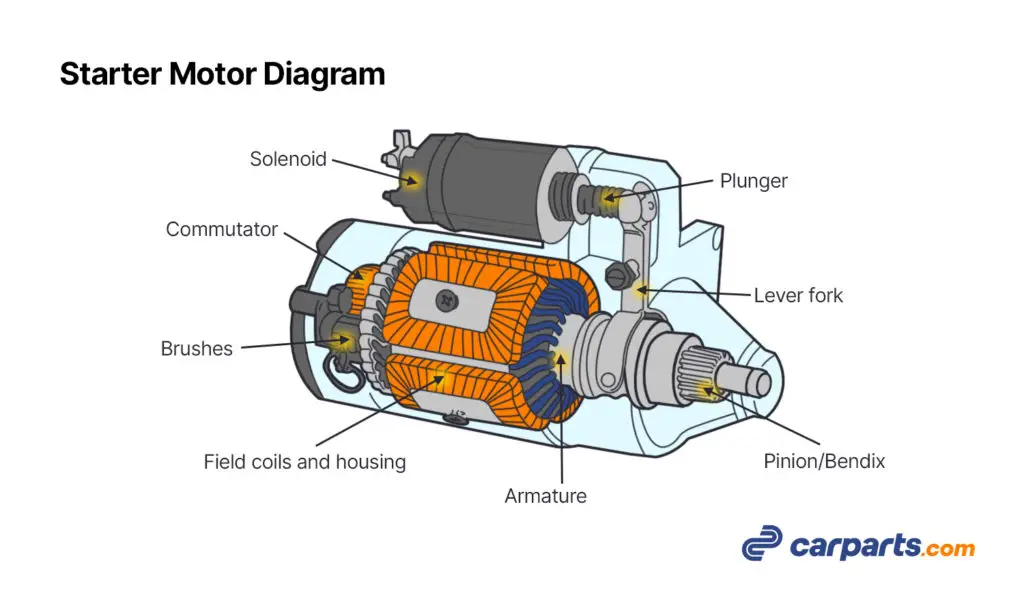
Starter Motor Parts and Functions 7 Important Parts All Car Fix
Looking for Parts Of A Starter? We have almost everything on eBay. But did you check eBay? Check Out Parts Of A Starter on eBay.

an image of the components of a motor
A starter motor is an essential component of a car's engine, responsible for initiating the engine's combustion process.It plays a crucial role in starting the engine and ensuring its smooth operation.The starter motor consists of several components, each with its own specific function.In this article, we will explore three important components of a starter motor: the solenoid, the.
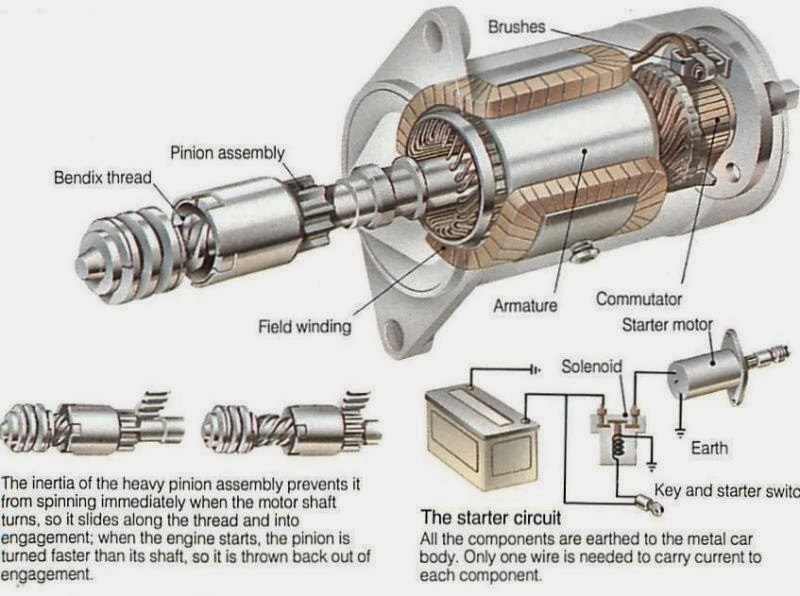
February 2014 Mechanical Engineering
A motor starter is an electrical component designed to start and stop a motor safely. Like a relay, a motor starter switches power on and off. Unlike a relay, a starter also provides overcurrent and low voltage protection. A motor starter has four main functions: Start a motor safely. Stop a motor safely. Reverse the direction of a motor.

An electric motor starter is a crucial component in starting the internal combustion engine in a
Starter motor components - engine starting system is a system that have a function to crank the engine for the first time. The working principle of starter motor is to rotate the engine crankshaft via flywheel using electric motor circuit. The result is a rotating crank and engine cycle can be triggered to work continuously.

Starter motor drive mechanism
It also allows us to start and stop a motor from a remote location. So essentially a motor starter is an electrically operated switching device. They are primarily made up of just a few components. The first is a contactor, the second is an overload, and they are commonly used with some sort of circuit protection.

Repair Guides Engine Electrical Starter
A starter (also self-starter, cranking motor, or starter motor) is a device used to rotate (crank) an internal-combustion engine so as to initiate the engine's operation under its own power. Starters can be electric, pneumatic, or hydraulic.